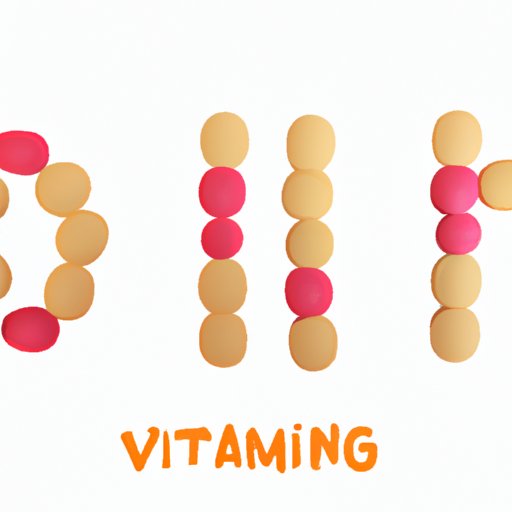
The Importance of Vitamins for Strong Bones
Having strong bones is an important aspect of maintaining overall health and well-being. While we know that calcium is essential for strong bones, many people are unaware of the role that vitamins play in bone development and maintenance. In this article, we will highlight the importance of vitamins for strong bones and discuss the specific vitamins that can help improve bone health.
Vitamin D
Vitamin D is essential for maintaining healthy bones. It helps increase calcium absorption in the body, which is necessary for building and maintaining strong bones. Studies have shown that individuals with higher levels of Vitamin D in their blood have a lower risk of bone fractures. In addition, Vitamin D also aids in the maintenance of muscle mass and function, which helps reduce the risk of falls.
Sources of Vitamin D include fatty fish such as salmon, tuna, and mackerel, as well as fortified foods like milk, orange juice, and cereals. Sunlight exposure also triggers the body to produce Vitamin D. However, it can be difficult to obtain enough Vitamin D through food and sunlight alone, and supplementation may be necessary. The recommended daily intake of Vitamin D is 600-800 IU for children and adults. However, it is essential to consult with a physician before taking any supplements, as excessive levels of Vitamin D can be harmful.
Vitamin K2
Vitamin K2 works in synergy with Vitamin D to support healthy bones. It helps activate proteins that regulate calcium absorption and distribution in the body. Research has shown that Vitamin K2 may reduce fracture rates in postmenopausal women.
Food sources of Vitamin K2 include fermented foods such as natto, cheese, and egg yolk. The recommended daily intake of Vitamin K2 is 120 mcg for women and 150 mcg for men. Vitamin K2 supplements are also available, and it is important to consult with a healthcare provider before taking any new supplements.
Vitamin C
Vitamin C is essential for collagen synthesis, which is important for bone mass and structure. Collagen is a protein that provides strength and support to bones. As we age, collagen production decreases, and this can lead to a loss of bone mass and osteoporosis.
Food sources of Vitamin C include citrus fruits, strawberries, blueberries, bell peppers, and leafy greens. It is important to consume these foods raw or minimally cooked, as Vitamin C is easily destroyed by heat. Supplements are also available, but it is recommended to get Vitamin C through whole foods whenever possible. The recommended daily intake of Vitamin C is 75-90 mg for adults.
Zinc
Zinc plays an important role in bone development. It helps stimulate bone-building cells, which leads to increased bone density. Research has shown that individuals with higher levels of zinc in their diets have a lower risk of osteoporosis.
Food sources of zinc include beef, chicken, oysters, legumes, and nuts. Zinc supplements are also available, but it is important not to exceed the recommended daily intake of 11 mg for men and 8 mg for women. Growing your vegetables is also a great way to increase your zinc intake.
Calcium
Calcium is a crucial mineral for building strong bones. It is the main component of bone tissue and is essential for bone growth and development. Different age groups require varying amounts of calcium for optimal health.
Food sources of calcium include dairy products, tofu, beans, and leafy greens. Supplements are also available, but it is important to choose the right type of supplement and follow the instructions carefully. Calcium citrate is a more easily absorbed supplement form and is recommended for individuals with low stomach acid levels. Calcium carbonate needs stomach acid production. The recommended daily intake is 1,000 mg for adults and 1,200-1,300 mg for adults over the age of 50.
Conclusion
In conclusion, vitamins play a crucial role in maintaining strong bones. Vitamin D and calcium are perhaps the most well-known, but Vitamin K2, Vitamin C, and zinc are also important for bone development and maintenance. It is essential to get these vitamins through whole foods whenever possible, but supplementation may be necessary in some cases. By adding these vitamin-rich foods to your diet and consulting with your healthcare provider about supplementation, you can take proactive steps towards improving your bone health and reducing your risk of osteoporosis.




